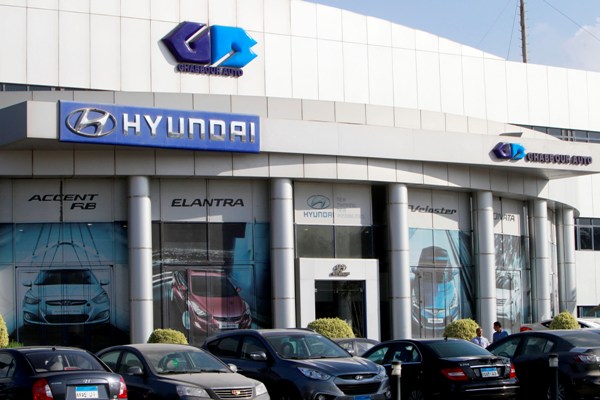INTERVIEW - Egypt's GB Auto calls for lower tariffs on car imports

By Stephen Kalin and Nadia El Gowely
CAIRO, April 30 (Reuters) - Egypt's largest listed automotive assembler and distributor GB Auto has called for lower tariffs on car imports from the United States and Asia, fearing that free trade agreements signed with Europe, Turkey and Morocco will distort competition.
A pact signed with the European Union in 2001 to boost trade will see a gradual elimination of custom's duty on auto imports over the next few years. Egypt has signed similar deals with regional car-producing giants Turkey and Morocco.
By giving an advantage to those source countries, the agreements will inevitably squeeze other importers and local assemblers out of the market, Raouf Ghabbour, chief executive of GB Auto, told Reuters on Wednesday.
GB Auto is the Egyptian distributor of three-wheel tuk-tuks and motorbikes made by India's Bajaj. It is also Egypt's sole dealer of Hyundai, Mazda and Geely cars and sells cars it assembles from kits.
"Currently the Egyptian passenger car distribution business is break-even or slightly losing money. The more we go into the implementation of the partnership agreements, the business is going to be completely loss-making," he said in an interview at his office on the outskirts of Cairo this week.
"No one will ever think of investing as long as the regulations are unchanged."
Mercedes-Benz, a brand of Daimler AG, said this week it would end local production of passenger cars in Egypt and move exclusively to imports.
It said in a statement "local assembly in Egypt will not be economically feasible in the long run" due to the conditions set by the EU partnership agreement.
Ghabbour said that sends a bad message about Egypt, which is seeking to attract billions of dollars in foreign investment to rebuild an economy battered by four years of political unrest.
By seeming to favour imports over locally-produced goods, it could also undermine Egypt's efforts to shore up foreign reserves, which have been running low since 2011 and are critical for imports of food and energy.
Ghabbour said the government should look instead at providing subsidies to local assemblers like GB Auto to transform them into manufacturers which he said would create jobs and generate hard currency.
He estimated government-supported auto manufacturing could meet 70 percent of domestic demand by 2018 while exporting half of its capacity to regional markets.
Yet the authorities, which began dismantling costly energy subsidies last summer, a move welcomed by investors, have not yet said they would support such an initiative.
(Editing by Yara Bayoumy and David Evans)









facebook comments